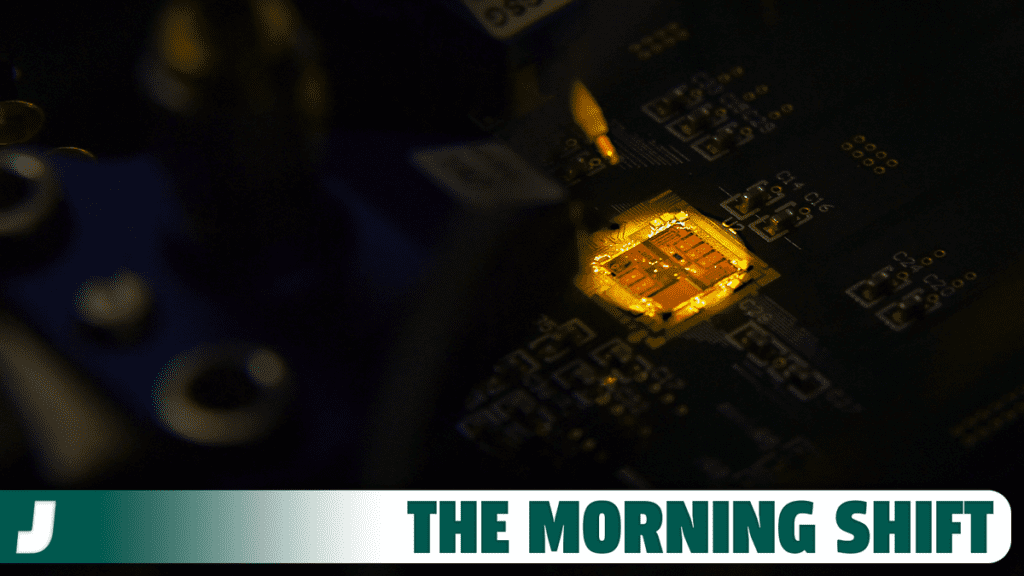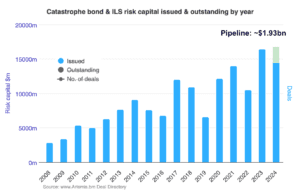The Chip Shortage Is Dead, Long Live The Chip Surplus

Happy Thursday! It’s January 4, 2024, and this is The Morning Shift — your daily roundup of the top automotive headlines from around the world, all in one place. Here are the important stories you need to know.
AAA Offers an Emergency Charging Solution When Your EV Runs Out of Range
1st Gear: The Chip Shortage Has Become A Chip Surplus
When the world shut down and time stopped forever back in 2020, automakers struggled to get their hands on the microchips that make everything work. Now, it seems, supply has caught up to demand. In fact, it may have exceeded demand. From Reuters:
Jan 4 (Reuters) – Self-driving technology company Mobileye Global (MBLY.O) warned on Thursday that a pullback in orders from customers clearing excess inventory will batter its revenue this year, sparking a selloff in the shares of auto chip suppliers.
…
Mobileye forecast preliminary 2024 revenue below estimates showing that the automotive chip industry, which had so far avoided the chip supply glut crisis, will likely face a downturn too.
Shares of auto chipmakers such as NXP Semiconductors (NXPI.O), Onsemi (ON.O), Texas Instruments (TXN.O) and Wolfspeed (WOLF.N) were down between 2.0% and 3.8%.
“As supply chain concerns have eased, we expect that our customers will use the vast majority of this excess inventory in the first quarter of the year,” Mobileye said.
“Chip supply glut crisis” sure is a phrase. After years of shortage, we now have have more than enough chips to meet demand — but that’s a crisis, simply because suppliers can’t charge the same kind of profits they used to. Aw, boo hoo. Get a real problem.
2nd Gear: EV Charging Is Still Too Slow
Filling your car up with gas normally takes a few minutes. It’s long enough that you’d rather spend the time in your car on a cold day, but not so long that you’ll freeze if you’re stuck at one of those pumps that doesn’t latch. EVs, unfortunately, still seem stuck with “oh god I need to be inside” fill-up times. From Automotive News:
Electric vehicle owners are paying for fast-charging sessions that take longer than 40 minutes on average, and the charging speed changes significantly depending on the vehicle and the charger.
The average paid fast-charging session at a non-Tesla charger was 42 minutes, according to an Energetics study of 2.4 million charging sessions over a three-year period ending June 30, 2023. The study, cited by the U.S. Department of Energy last month, found that free public charging sessions took almost twice as long — 1 hour and 18 minutes on average. (Many automakers have partnerships with charging networks, such as EVgo and Electrify America, to give their customers free charging sessions.)
Public charging speed is among several barriers that make consumers reluctant to purchase an electric vehicle. It is a frequent pain point cited in EV owner surveys, including J.D. Power’s Electric Vehicle Experience Public Charging studies. J.D. Power’s August report said EV owners were increasingly dissatisfied with charging speed on both Level 3 fast and Level 2 chargers.
At least, with an EV, all the chargers latch. You can sit inside your warm car while it charges, safe and protected from the wind and the rain, but you’ll be sitting there for a good long while. With any luck, we’ll see advancements that start to whittle down those times.
3rd Gear: Volkswagen May Have A Solution For EV Battery Wear
There are still car buyers out there, skeptical of how the years will affect EV batteries. Range, charge speed, durability; these are all unknowns that folks cite in order to justify buying another Tahoe. New tech from Volkswagen, however, may be the solution those skeptics are looking for. From Automotive News:
Volkswagen AG said its battery startup has seen promising results with solid-state cells for electric vehicles, a win for the German carmaker as it pushes to make EVs more efficient and less expensive.
A solid-state prototype from VW’s U.S. partner QuantumScape Corp. “significantly exceeded” industry targets in recent tests, the carmaker said Wednesday in a statement. During tests by VW’s battery unit PowerCo over several months, the cell saw only 5 percent storage capacity loss after more than 1,000 charging cycles, the equivalent of 310,685 miles on the road. VW said industry targets for this development phase are 700 charging cycles and a maximum loss of 20 percent capacity.
Solid-state batteries are going to be the future of EVs, and everyone and their mother seems to be working on them. Maybe, just maybe, they can help solve those charge times from the previous gear.
4th Gear: GM Offers $7500 Cash On EVs That Lost Tax Credit
When the new rules from the Inflation Reduction Act limited tax rebates on EVs, in order to ensure the continued profits of one Senator Joseph Manchin III (R-WV), we all wondered what would happen to EV prices. Would they drop by the full tax credit amount, or some smaller value, or stay the same? Now we’re seeing the answer, and it starts with GM. From Reuters:
WASHINGTON, Jan 3 (Reuters) – General Motors (GM.N) said on Wednesday it is offering incentives of $7,500 on its electric vehicles that earlier this week lost a U.S. government tax credit, while Ford Motor (F.N) said it is hiking the prices of some of its F-150 EVs by $10,000.
The Treasury issued guidelines in December detailing new battery sourcing requirements aimed at weaning the U.S. EV supply chain away from China. The guidelines took effect on Monday.
GM said last month that all of its EVs would temporarily lose eligibility except the Chevrolet Bolt, adding that the Cadillac Lyriq and Chevy Blazer EVs are losing the credit because of two minor components.
…
GM told its dealers it would provide the equivalent EV tax credit purchase amount “for any vehicles that became ineligible due to the new guidelines.”
GM expects that after a sourcing change, the Lyriq and Blazer EVs will regain eligibility in early 2024 and said its Chevrolet Equinox EV, Chevrolet Silverado EV, GMC Sierra EV and Cadillac OPTIQ produced “after the sourcing change will be eligible for the full incentive.”
This is only a temporary measure, holding down the fort until the rebate returns, but it still demonstrates just how profitable this whole “carmaking” thing is. GM can just throw $7,500 down on the hoods of all its EVs, because that’s still a sounder financial decision than trying to sell cars without the credit discount.
Reverse: And Then No Scandals Happened
Neutral: Why Are All The Bands I Like Dying?
Over the past few days, I keep running into bands I like — bands I’ve seen — that are no longer doing the whole “band” thing. I miss Diet Cig, I miss Daddy Issues. Is this just what your late 20s are like?
On The Radio: Nervous Dater – ‘Don’t Be A Stranger’ (Audiotree Live Version)
Nervous Dater – Don’t Be A Stranger | Audiotree Live
The studio version of this song lives forever in my bubblegrunge playlist — sure, it’s not full Diet Cig or Charly Bliss, but the vibes are similar enough — but I keep coming back to the Audiotree Live version of the track. It’s just so gritty, so unpolished, it sounds like the college basement shows that killed my hearing. I love it.




